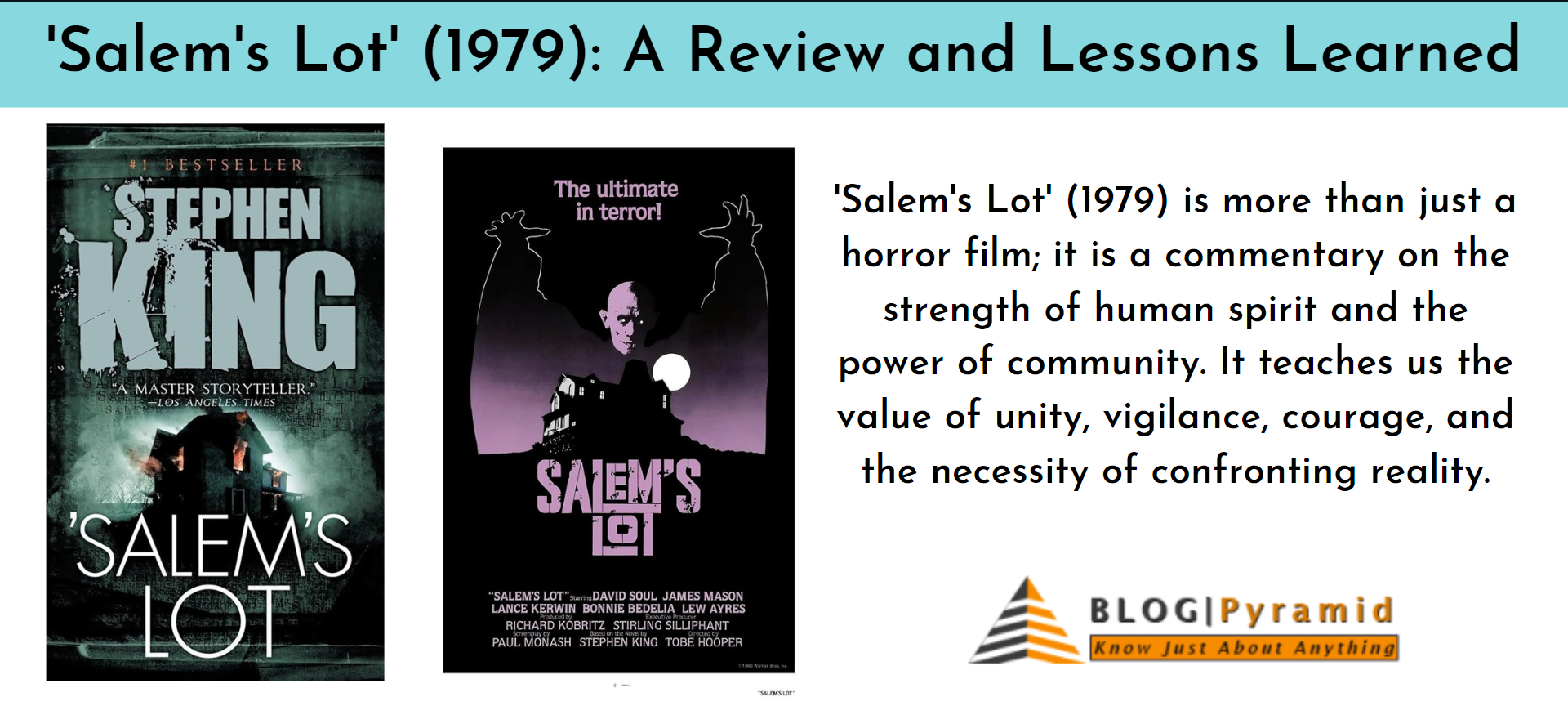‘Salem’s Lot’ (1979): A Review and Lessons Learned
Stephen King’s ‘Salem’s Lot’, adapted into a miniseries in 1979, is a quintessential tale of horror that intertwines small-town dynamics with supernatural terror. Directed by Tobe Hooper, this adaptation remains a landmark in the horror genre, showcasing how a peaceful community can be uprooted by ancient evil.
Plot Overview
The story centers around Ben Mears (David Soul), a novelist who returns to the small town of Jerusalem’s Lot (Salem’s Lot) in Maine, only to discover that its residents are falling prey to a mysterious illness. The source of this affliction is the newly arrived antique dealer, Richard Straker (James Mason), and his master, the vampire Kurt Barlow (Reggie Nalder). As the town succumbs to vampirism, Ben, along with a few other townsfolk, must confront and eradicate the evil threatening their existence.
Themes and Lessons
- The Power of Community:
- Unity Against Adversity: One of the central themes in ‘Salem’s Lot’ is the importance of community solidarity. When the town’s residents begin to realize the nature of the threat, it is only through collective effort that they can hope to combat the evil. This underscores the lesson that in the face of overwhelming odds, unity and collaboration are crucial for survival.
- Evil Lurking in Plain Sight:
- Vigilance and Awareness: The film demonstrates how evil can infiltrate even the most unsuspecting places. The serene town of Salem’s Lot, with its tight-knit community, is blindsided by the insidious arrival of the vampire. This serves as a stark reminder to always be vigilant and not take the safety of familiar surroundings for granted.
- Courage and Sacrifice:
- Facing Fears: Ben Mears embodies the courage needed to confront supernatural threats. His journey is one of personal redemption and bravery, emphasizing that facing one’s fears head-on is essential to overcoming them. The characters’ willingness to put themselves in danger for the greater good highlights the importance of personal sacrifice in the fight against evil.
- The Consequences of Denial:
- Acknowledging Reality: Initially, the townspeople are in denial about the existence of vampires, which allows the evil to spread more easily. This element of the story teaches the critical lesson that acknowledging and addressing problems early on is essential to preventing their escalation.
Cinematic Impact
‘Salem’s Lot’ has been praised for its atmospheric tension and effective use of horror elements. The 1979 miniseries captures the eerie essence of King’s novel, making it a memorable and chilling experience. Tobe Hooper’s direction ensures that the suspense builds steadily, culminating in a horrifying climax that has left a lasting impression on audiences.
The performances, particularly by David Soul and James Mason, add depth to the narrative, making the characters’ plight palpable and the horror more immediate. The practical effects and makeup, especially in the portrayal of the vampires, were groundbreaking for the time and still hold up well, contributing to the film’s enduring legacy.
Conclusion
‘Salem’s Lot’ (1979) is more than just a horror film; it is a commentary on the strength of human spirit and the power of community. It teaches us the value of unity, vigilance, courage, and the necessity of confronting reality. As we watch the residents of Salem’s Lot battle against ancient evil, we are reminded that true horror lies not just in the supernatural, but in our own reluctance to face and fight the darkness that can infiltrate our lives.
For fans of horror and Stephen King’s work, ‘Salem’s Lot’ remains a must-watch, offering both thrills and profound lessons about human nature and resilience.








